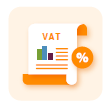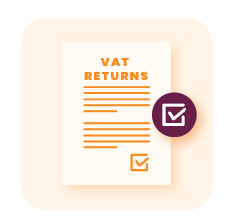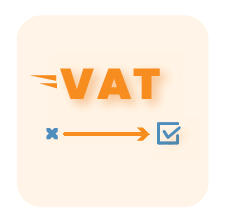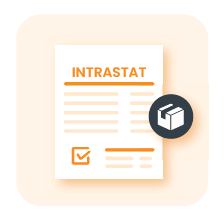Invoicing in Sweden
In general, individuals or entities subject to taxation must provide VAT invoices for all transactions involving taxable persons and legal entities. This requirement applies to all types of transactions, including exports and intra-community supplies. However, it usually doesn’t apply to transactions that are VAT-exempt. To claim input tax deductibility or reimbursement under the EU refund schemes, a valid VAT invoice is required.
Learn more about Invoice requirements in Sweden in our comprehensive guide.
Selling in Sweden?
Simplified Invoicing
This is the underlying information a simplified invoice must contain:
- Invoice date.
- Seller’s VAT registration number.
- Description of the goods or services.
- Total VAT charged.
In Sweden, sales of SEK 2,000 or less inclusive of VAT are permitted to use simplified invoices. However, it is required by the Swedish authorities that the invoices should be reported in Swedish using the official currency of Sweden, which is krona. If the invoice issuer has a euro account, it may be stated in euro as an alternative.
There is no specific format needed for the invoices and electronic invoices are permitted, subject to the recipient’s approval. Each EU country has the freedom to make national decisions, and the EU Commission provides detailed provisions that should be adopted by all EU member states.
EU regulations provide EU countries the freedom to make national decisions. The EU Commission publishes the detailed provisions that should be adopted by each EU country on their website, see here for more information.
Electronic Invoicing
Electronic invoicing is permitted in Sweden subject to the approval of the recipient, and there are specific transmission methods for public entities, while any practical method can be used for other recipients, without any specific validation or reporting requirements.
Furthermore, for business-to-government (B2G) transactions, electronic invoicing is mandatory as per Sections 4 and 5 of the Act on Electronic Invoices as a Result of Public Procurement (2018:1277).
Last Updated: 18/09/2023
Disclaimer
The information provided by Global VAT Compliance B.V. on this webpage is intended for general informational purposes only. Global VAT Compliance B.V. is not responsible for the accuracy of the information on these pages, and cannot be held liable for claims or losses deriving from the use of this information. If you wish to receive VAT related information please contact our experts at support@gvc.tax








